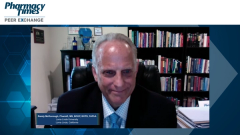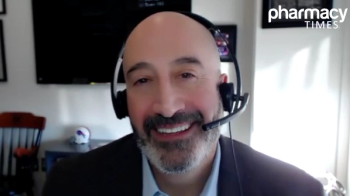
Goals of Pharmacologic Maintenance of Heart Failure
Randy McDonough, PharmD, MS, BCGP, BCPS, FAPhA reviews the goals of pharmacologic maintenance of heart failure and comments on the importance of social determinants of health, health system efficiency, and patient education.
Episodes in this series

Richard Mullvain, RPh, BCCP, BCPS, CCCC: I’m going to shift to Randy. Let’s talk about the goals of these therapies. How do we ensure the goals of therapy are being met?
Randy McDonough, PharmD, MS, BCGP, BCPS, FAPhA: From a community pharmacist perspective, there are 4 questions I want my pharmacist to think about. Has the patient achieved a therapeutic outcome? This is why we have to work as a team. Are we getting the information we need to know from the other providers: how this patient is being treated, what we should be monitoring, and how we should be aggressively titrating their doses? That’s the first thing. Have we achieved that outcome that we’re interested in?
Next, I want to make sure the medications are safe. We’ve got to monitor these patients closely to make sure they’re not having adverse events. We need to make sure we’re feeding that information back to the other providers if we see that the patient is having an adverse effect. We also need to educate the patient to make sure they understand how the therapy works and why they need to be on these therapies.
The next thing: Is it effective? We want to make sure we’re achieving the effects we’re supposed to be achieving with the medications. Last and certainly not the least: Is it cost effective? Can the patient afford this? When I look at it from a community pharmacy perspective, we go into every single patient encounter as if a medication therapy problem exists. I tell people that, most times, I’m right. Ryan and I have done quite a bit of a collaboration. He’s seeing them at the cardiology clinic. I’m seeing them at the pharmacy. We’re communicating. It was amazing the number of problems we identified because patients were not taking things the way they were prescribed, or the physician—the prescriber—told the patient to do something but didn’t tell us. All of a sudden, you see things not working quite right because they’re on duplicate therapy, or we don’t know they’re supposed to increase the dose, and vice versa.
There are a lot of challenges from a community pharmacy. That’s all the more reason why we need to think about how we can access electronic health records, so we have a common record and can be communicating back and forth. Heart failure is a very complicated condition with very complex medications that need to be dosed appropriately. Pharmacists in all settings need to be communicating with one another and other providers.
Richard Mullvain, RPh, BCCP, BCPS, CCCC: Very good, Randy. I’m going to keep you on the hook because I want you to drill down a little deeper. Let’s talk about medication adherence, affordability, and the role of the pharmacist. Can you touch on that, please?
Randy McDonough, PharmD, MS, BCGP, BCPS, FAPhA: Yes. Medication adherence is a pet peeve of mine because we always look at cost or the patient forgetting. Medication adherence—nonadherence is probably a better term—is a very complicated thing. There are 5 areas that we need to be looking at. One is socioeconomic. The big movement outside the medical treatment of patients is social determinants of health. What are those things outside medical that are affecting the patient’s ability to take medications or access medical personnel or medical treatments? We’re doing a lot of work with social work, social services, and other providers to try to identify some of these issues in advance.
There are health system issues. I just talked about how records are not being shared and how things might be communicated to the patient or another provider but not across the board to all providers. That’s a missed opportunity and could be a potential for errors. No. 3 is condition related. With heart failure, these patients obviously have symptoms. That will usually be a reminder to them that they need to be taking their medication. But they also have other comorbidities, which makes it even more complicated. There might also be psychosocial issues that we have to be treating for that patient.
The fourth is therapy related. We just talked about how complicated heart failure treatment is. It’s not just the number of drugs but also titrating appropriately and knowing when we even place them in therapy. It’s complex to us, so you can imagine how this can be complex to the patient as well. This is where it’s going to be important for pharmacists in all settings to work together to reinforce to the patient why they need to be on these medications.
The last factor is patient related. They need to understand the perceived risk, or the susceptibility of the disease. They need to understand why they need to be on these medications. Once they have a better understanding, they’re more likely to take those medications. Motivational interviewing is important, along with making sure you’re coaching the patient throughout this process and feeding that information back to the other providers so they know what you’ve done within the community setting to help complement that care of that patient.
Richard Mullvain, RPh, BCCP, BCPS, CCCC: That’s great. Thank you.
Transcript edited for copyedit.
Newsletter
Stay informed on drug updates, treatment guidelines, and pharmacy practice trends—subscribe to Pharmacy Times for weekly clinical insights.






























